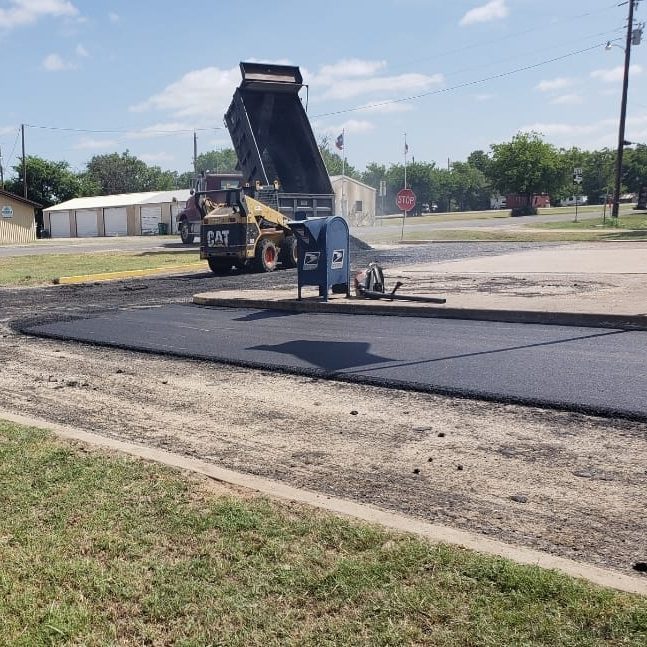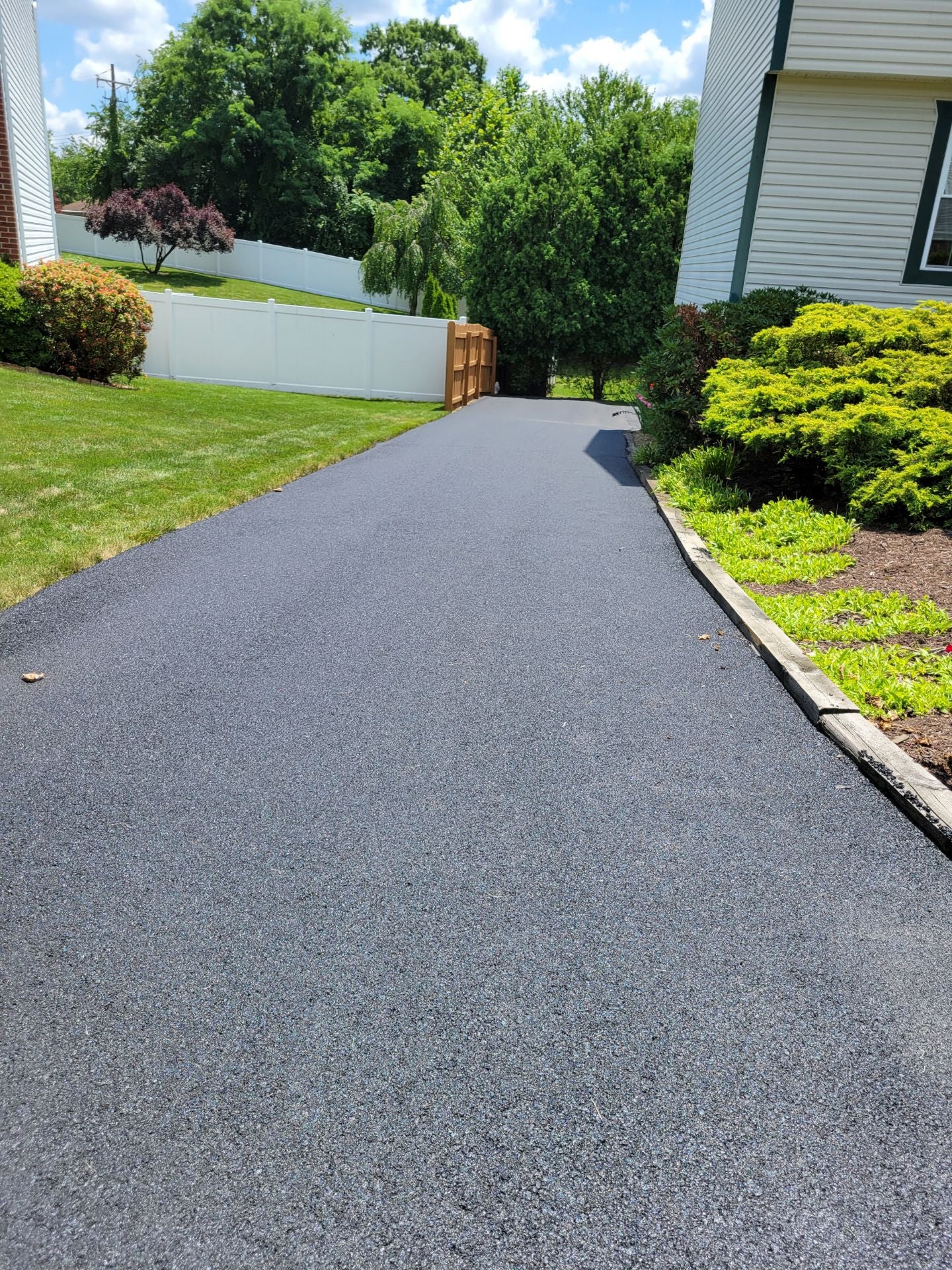Custom Paving Projects to Suit Your Needs
Custom Paving Projects to Suit Your Needs
Blog Article
Exploring the Numerous Sorts Of Asphalt Paving and Their Advantages
From the durable features of Hot Mix Asphalt to the environmentally friendly qualities of Recycled Asphalt Sidewalk, recognizing these alternatives can significantly affect project outcomes. Developments such as Warm Mix Asphalt and Porous Asphalt introduce extra layers of effectiveness and sustainability.
Warm Mix Asphalt
When taking into consideration one of the most reliable leading remedies, warm mix asphalt (HMA) attracts attention as a top selection for many applications (paving). HMA is a functional leading product recognized for its longevity, adaptability, and total efficiency. It is created by home heating asphalt binder and integrating it with aggregates at high temperatures, guaranteeing an uniform mixture that can withstand numerous ecological problems
One of the primary benefits of HMA is its capacity to give a smooth, skid-resistant surface area, improving safety for vehicles and pedestrians alike. In addition, HMA shows exceptional resistance to deformation, making it perfect for high-traffic locations such as freeways and car park. Its adaptability to various environments even more adds to its extensive use.
The installation procedure of HMA is relatively fast, permitting efficient task conclusion with minimal disturbance to web traffic. It can be reused, minimizing waste and promoting sustainability within the building industry. paving service. In general, warm mix asphalt remains a leading choice for paving specialists because of its durable performance characteristics and long-lasting cost-effectiveness, making it a dependable remedy for different framework needs
Cozy Mix Asphalt
Warm mix asphalt (WMA) uses a cutting-edge option to warm mix asphalt, providing comparable advantages while requiring reduced manufacturing temperatures. Commonly produced at temperature levels in between 190 ° F and 250 ° F, WMA technology minimizes power consumption and greenhouse gas discharges throughout manufacturing, making it a much more eco pleasant option.
This adaptability can lead to improved compaction and overall resilience of the asphalt surface. Furthermore, WMA can be used in different applications, ranging from highways to property driveways, without jeopardizing efficiency.

The incorporation of additives or changed binders in WMA adds to its boosted properties, ensuring that it fulfills or goes beyond efficiency requirements. WMA's minimized thermal impact throughout manufacturing can decrease the likelihood of damages to the surrounding atmosphere, making it an appealing selection for sustainable paving practices.
Cold Mix Asphalt
Cold mix asphalt is a versatile leading solution frequently used for momentary repairs and low-traffic areas. This sort of asphalt is produced at ambient temperature levels, making it a hassle-free choice for fast solutions and projects where standard warm mix asphalt may not be practical. The mixture usually includes asphalt binder, aggregate, and additives, enabling it to continue to be workable for a prolonged duration.
One of the primary benefits of cool mix asphalt is its ease of application. It can be installed without specific tools, making it accessible for smaller specialists and do it yourself fanatics. Additionally, chilly mix can be applied in numerous climate condition, which is especially helpful for immediate fixing demands.

Cold mix asphalt is likewise economical, as it enables economical fixings without giving up top quality. Its adaptability makes it ideal for covering potholes, filling cracks, and resurfacing driveways. Although it might not give the very same lasting here longevity as warm mix asphalt, its fast application and versatility make it an exceptional option for short-term services and low-traffic applications. Overall, cool mix asphalt continues to be a useful option in the asphalt paving landscape.
(view site)
Permeable Asphalt
Porous asphalt is a cutting-edge paving option developed to enhance stormwater monitoring and minimize surface drainage. This kind of asphalt features an one-of-a-kind structure that incorporates interconnected spaces, allowing water to penetrate with the surface area and right into the underlying layers. By facilitating all-natural drainage, permeable asphalt assists minimize the danger of flooding and diminishes the problem on community stormwater systems.
Among the primary advantages of porous asphalt is its capability to enhance water quality. As stormwater infiltrate the pavement, contaminants and debris are caught, lowering the number of impurities that enter neighborhood waterways. This adds to much healthier communities and sustains compliance with ecological laws.
Furthermore, permeable asphalt can enhance the durability of the sidewalk itself. By decreasing water buildup externally, it minimizes the capacity for freeze-thaw cycles that can bring about breaking and damage. Furthermore, the minimized demand for traditional stormwater administration framework can cause cost savings for communities and programmers.
Recycled Asphalt Sidewalk
(try here)Recycled asphalt pavement (RAP) stands for a lasting strategy to street building and upkeep that profits both the environment and the economic climate. By recycling existing asphalt products, RAP lowers the demand for new raw materials, which consequently preserves all-natural sources and minimizes environmental impact. This method reduces power usage and greenhouse gas exhausts connected with the manufacturing of brand-new asphalt.
The incorporation of RAP into new pavement mixtures can also result in considerable expense savings. Professionals can take advantage of recycled products to minimize general job costs, making it an economically viable choice for towns and exclusive designers alike. In addition, RAP offers similar performance characteristics to virgin asphalt, guaranteeing durability and longevity in road surface areas.
RAP's convenience enables it to be used in different applications, including freeways, parking area, and household driveways. By improving the structural integrity of existing sidewalks, RAP contributes to improved safety and level of smoothness of roads.
Conclusion
To conclude, the varied types of asphalt paving each offer distinctive advantages tailored to certain demands. Hot Mix Asphalt succeeds in sturdiness and rapid installment for high-traffic areas, while Warm Mix Asphalt boosts sustainability through lowered power consumption. Cold Mix Asphalt functions as a cost-effective alternative for urgent repairs, Porous Asphalt properly handles stormwater, and Recycled Asphalt Sidewalk promotes ecological responsibility. Jointly, these paving remedies contribute to reliable, environment-friendly practices in the building industry.
Report this page